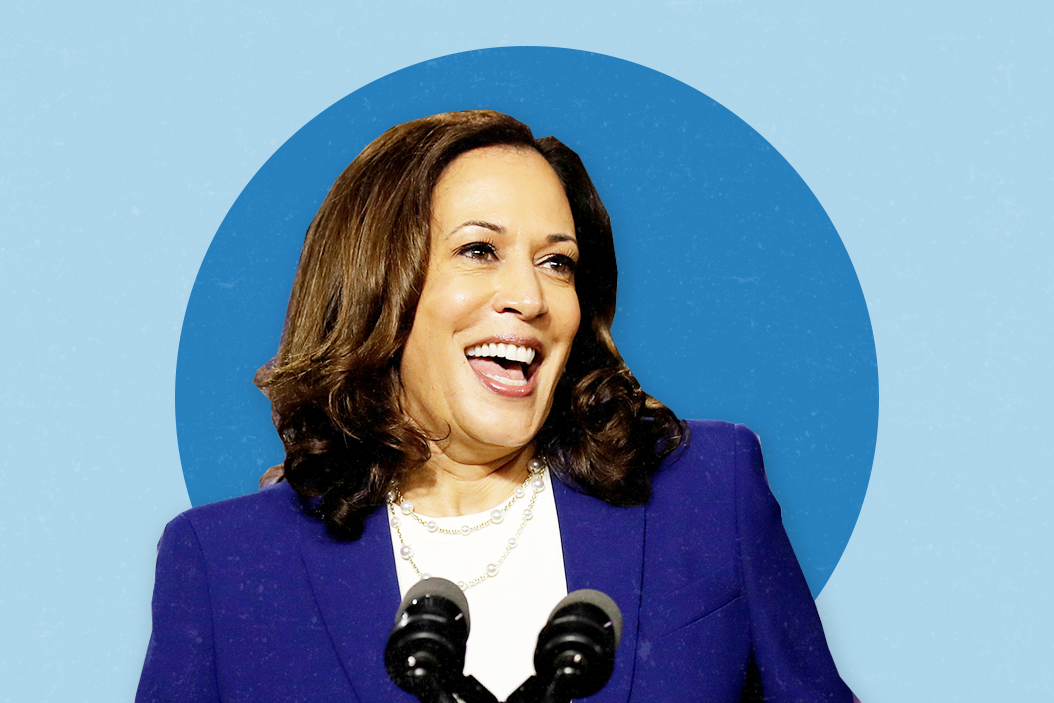August 13, 2020
You've probably heard a lot in the past three days about Senator Kamala Harris, her background, and the ground-breaking nature of her candidacy for US vice president.
But now that the cheering crowds have logged off and the virtual confetti has been swept away, we're left with a basic question: will Kamala Harris make a difference — on the campaign trial and maybe in the White House — for Joe Biden?
There are three ways to answer that question.
Can she help Biden unseat President Donald Trump? Early evidence suggests Biden's choice of Harris is fairly popular. As the first black woman and first person of Asian descent on a presidential ticket, she might boost Biden's appeal at the margins with black voters, women, and Indian-Americans, though Biden is already popular with the first two groups.
Less tangibly, but perhaps more importantly, Harris' considerable energy and charisma can boost public excitement for a campaign led by the 77-year-old Biden, a man who has been active in US politics for half a century. On the other hand, her record as a San Francisco prosecutor and California attorney general will trouble some voters on the progressive left who want substantial reform of policing across the United States.
All that said, the historical evidence shows that voters don't care very much whose name appears second on the party ticket.
Can she serve as president on a moment's notice? The vice president's most important constitutional role is to become president if the boss can't continue. Gerald Ford (1974), Lyndon Johnson (1963), and Harry Truman (1945) are the most recent examples.
Senator Harris does have executive experience. As California Attorney General, she ran the second largest justice department in the United States, an organization with 5,000 employees.
She was much less successful, however, at the head of her own 2020 presidential campaign, a mysteriously dysfunctional operation that broke down before the first votes were cast in Democratic primaries.
If Biden wins, can she help him govern? When Biden introduced her on Wednesday as his campaign partner, he said he wants Harris to be the "last voice in the room" after other advisors are gone and someone who will "challenge my assumptions if she disagrees."
The prosecutorial precision with which Harris has questioned witnesses during Senate hearings, and her willingness to go after Biden on the debate stage while she was still a presidential candidate, suggest Harris has more than enough toughness and poise to fill that role. Also important: Biden's trust in Harris is boosted by her longstanding friendship with his late son Beau.
Here's a bonus question....
Is Kamala Harris the future of the Democratic Party? Not so fast. Ask a voter enthusiastic about Senator Harris what they like about her, and you're more likely to hear about her personal strengths and professional achievements than about policy positions.
Progressive voters, increasingly important for the future of the Democratic Party, know what Senator Bernie Sanders believes. They know that Senator Elizabeth Warren has "a plan for that," and they associate emerging star Alexandria Ocasio-Cortez with the "Green New Deal."
If Kamala Harris is to become the dominant voice in her party, she'll have to develop a brand that makes it easier for voters to identify her — and easier for rivals to attack her.
Bottom line: Harris has obvious value for Biden as a respected and trusted policy advisor. Her broader political appeal remains untested.
More For You
Bad Bunny during the Super Bowl LX halftime show press conference at Moscone Center.
Kirby Lee-Imagn Images
100 million: The number of people expected to watch the Super Bowl halftime performance with Bad Bunny, the Puerto Rican superstar and newly minted Album of the Year winner at the Grammys.
Most Popular
Think you know what's going on around the world? Here's your chance to prove it.
- YouTube
An imminent US airstrike on iran is not only possible, it's probable.
Americans are moving less — and renting more. Cooling migration and rising vacancy rates, especially across the Sunbelt, have flattened rent growth and given renters new leverage. For many lower-income households, that relief is beginning to show up in discretionary spending. Explore what's changing in US housing by subscribing to Bank of America Institute.
© 2025 GZERO Media. All Rights Reserved | A Eurasia Group media company.
